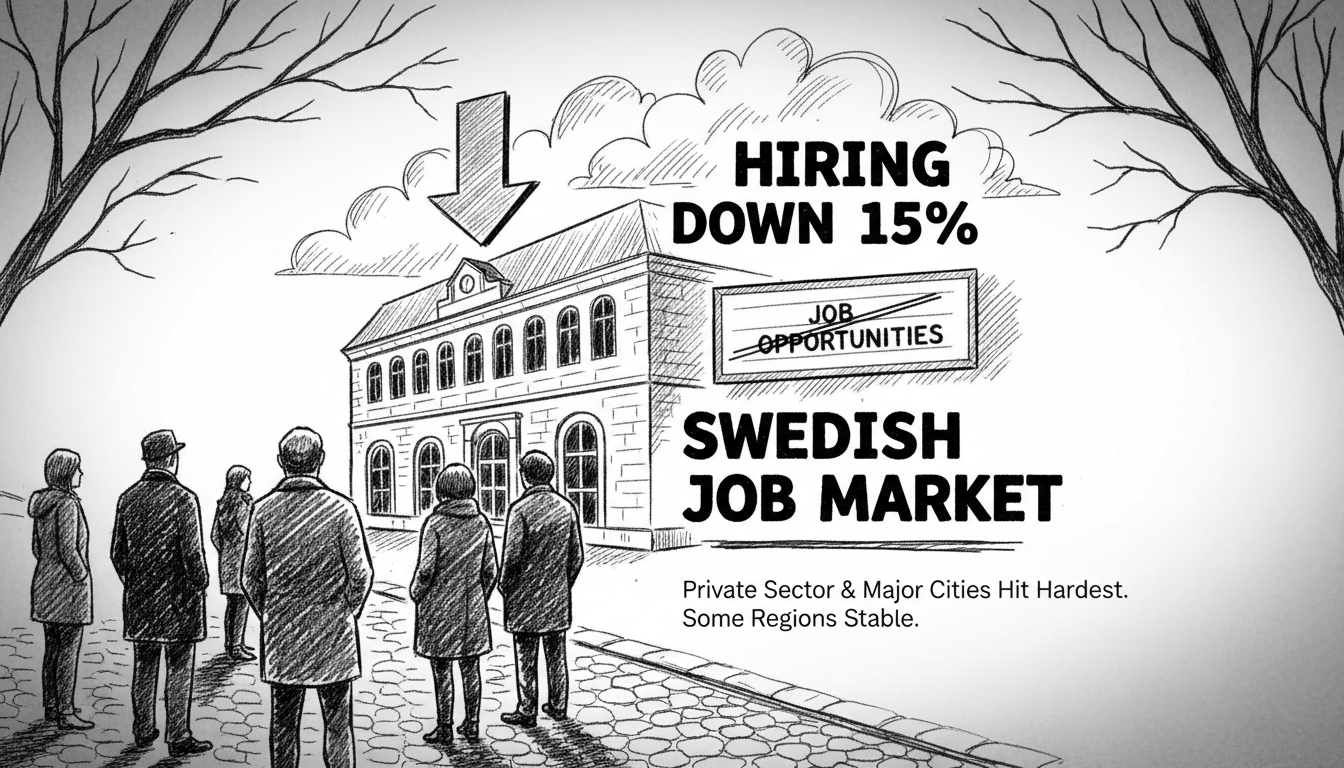Sweden's job market continues to show concerning trends as hiring activity decreases across most sectors. New data reveals a significant drop in job advertisements, particularly affecting private businesses and major urban centers. The numbers indicate reduced workforce mobility as companies adopt cautious hiring strategies.
Job listings platform data shows 96,338 job advertisements published during October. This compares to 113,825 ads during the same period last year, representing a decline of over 15 percent. The decrease comes despite the typical post-summer recruitment surge when many workers traditionally seek new positions.
Anita Rae, labor market chief at the platform, explains the unusual pattern. Companies appear to be waiting until 2026 before making major hiring decisions. The uncertainty around interest rates and future labor demand is reducing the typical workforce mobility we usually observe, she said in a statement.
The most dramatic declines appear in specific sectors. Sales and commerce positions dropped by 33.8 percent while technology and engineering roles fell 27.3 percent. IT, data, and service industries saw decreases approaching 23 percent.
Some sectors bucked the downward trend. Social work and security positions actually increased by 2.7 percent. Healthcare and education experienced more moderate declines of 2.6 and 3.0 percent respectively.
Geographic analysis reveals clear patterns. Stockholm County saw the sharpest decline at 21.8 percent, while Västra Götaland and Skåne regions experienced approximately 20 percent decreases. Only Örebro County showed growth with a 4.0 percent increase in job advertisements.
The labor market generally demonstrates more stability outside major cities. Office, service, and hospitality jobs concentrate in urban areas while industry and public sector roles, which tend to be more stable, hold greater importance in smaller regions, Rae noted.
Despite the current challenges, several indicators suggest improving conditions. Falling interest rates and stronger household economics point toward potential recovery. Most major cutbacks have already occurred, and companies now prioritize stability over expansion as they wait to confirm sustained positive trends.
This hiring slowdown reflects broader economic uncertainty affecting Swedish businesses. The pattern suggests companies are taking a wait-and-see approach rather than making aggressive hiring moves. The situation warrants monitoring as it could impact everything from consumer spending to housing markets across Sweden's regions.
International observers should note that Sweden's labor market typically shows resilience during economic uncertainty. The current cautious approach may represent strategic positioning rather than fundamental weakness. Still, the numbers indicate real challenges for job seekers in competitive sectors and urban centers.

